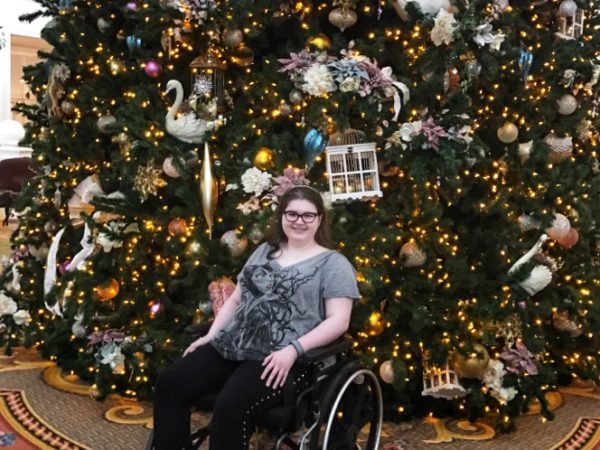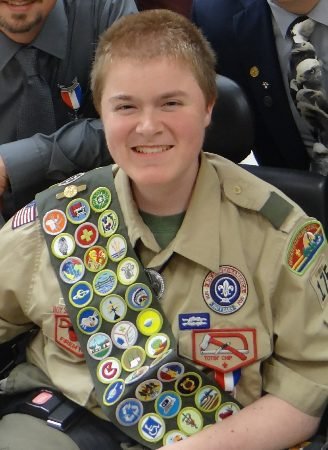Accepting the idea of normality would be a gross understatement of the challenges I have overcome. I am not normal, nor have I ever been society’s version of “normal”. Walking two hundred feet is a marathon. A flight of stairs is nothing short of a miracle. I live with Spinal Muscular Atrophy, a rare neurological disease similar to ALS in that my muscles have deteriorated to a point where it is incredibly difficult to function without the use of a wheelchair. There is one thing that the weakness of my legs will never take from me - the ability to control my future.
Growing up, I felt the constraints of a wheelchair made me powerless, but soon came to the realization that the actions I make with my time on earth may be the only thing in my power to govern, and by that logic, it didn’t matter if I could walk. What mattered was what I was able to achieve from each step.
I exceeded expectations throughout high school, and when I was not able to choose the hand I was dealt, I changed the game. The first week of freshman year I was that awkward teenager; I stuck out like a sore thumb in my purple wheelchair, but I was ready to take a leap of faith and ran for Class Secretary. I remember not being able to get to the podium because of stairs to the stage; nonetheless, I spoke from my seat and won the election. During my time in office, my ideas of Spring Flings and Dodgeball Tournaments circulated classrooms and soccer fields. When these ideas became reality, I knew the extent of my voice would reach beyond the school.
I served on an advocacy committee with U.S. Congressman, Representative Tierney and later, Representative Moulton on policy initiatives such as climate change, the cost of education, and gun control. Meeting with my Congressmen, I learned not only did I have the ability to change the world by expressing my story and opinions, but the aptitude of a politician to persuade others to do the same.
I became chair member of the Boston Children’s Hospital Teen Advisory Committee and developed policy on areas of legislative advocacy to ensure earned sick time for all men and women and raised the age of tobacco to 21. My concern for children’s well-being has laid the foundation of my philosophy and it was only sensible to become an advocate for children like myself.
Despite these and other successes, I felt incomplete. Reminiscing my youth when I could still walk and was passionately involved with dance, I established and managed the high school’s first Dance Club. In the audience on our first performance, butterflies brimmed my stomach. My spirit of courage and dedication was center stage, even when my legs were not.
Even with this full plate of activities, I still managed to maintain high grades, always making the honor roll and joining the National Honor Society in my school. Pursuing a higher education came to me like second nature, though going about the college search was certainly different for me than it was for my peers. While I might have had the grades and SAT scores to get into prestigious schools, my options were limited to the geographic layout of the campus, worrying that moving from class to class could be a challenge, or making sure the dorms were able to allow access for my wheelchair. In the end, I decided to attend UMass Amherst, and while they are certainly accommodating and receptive to my needs, I found myself in a position where out of a campus of 30,000 people, I was one of only a handful of disabled people able to live independently.
Regardless, I had been an advocate for my whole life and college was another time to prove just that. I had thought that making friends and adjusting to college life might be difficult because new people might be put off by my wheelchair, but once again I was proved wrong and was welcomed with open arms into the UMass community. I plan to continue to study public health policy as an undergraduate as well as receive a master’s in public health during my four years at UMass. Afterwards, I look forward to going to college to represent others with disabilities in the fight for a fair and just healthcare system.
I am not a normal nineteen-year-old. I have made the absolute best of my situation and controlled my life to the fullest extent I saw possible. My best advice to someone who is struggling with a similar disease is that your outlook on your life will ultimately impact the quality of life you live. Plant your sadness into seeds of hope, find your muse and make the most out of every day you are given, turn your limitations into possibilities which will change the world.


